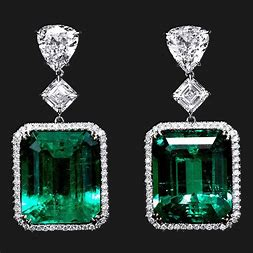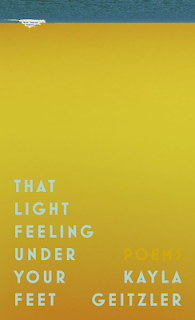It’s an honour to have Kayla
as our guest this week. Not only is she
a noted poet and author, but a very busy lady, as you will see in her bio.
We are most fortunate to have
Kayla as the organizer and creator of so many wonderful events and opportunities
to share our work.
She is deserving of every accolade
and award she receives.
Let’s meet Kayla.
Kayla Geitzler was born and raised in
Moncton, which is within Siknikt of the Mi'kma'ki. Named a "Rad Woman of
Canadian Poetry", she holds a Masters in English with a specialty in
Creative Writing from the University of New Brunswick. She was Moncton's
inaugural Anglophone Poet Laureate and Frye Festival Poet Flyee, and is the
organizer of the Attic Owl Reading Series. Her first collection of poetry, That
Light Feeling Under Your Feet (NeWest Press, 2018), was a Calgary Bestseller
and finalist for two awards. She is co-editor of Cadence: Voix feminines
Females Voices (Frog Hollow Press, 2020) a multilingual poetry anthology, the
first publication of its kind in NB. Kayla co-created Poésie Moncton Poetry, a website
archiving video poetry of Mi'kmaq and Moncton region poets with Francophone
Poet Laureate Jean-Philippe Raîche. She works as an editor & writing
consultant, offering full-service editing and writing, book layout, university-level
writing workshops, writing and performance coaching. In 2021, Kayla received a
Top 20 Under 40 Award from the Chamber of Commerce of Greater Moncton for her
entrepreneurial success and dedication to literature in her community.
Working Title: That Light Feeling Under Your Feet (NeWest Press, 2018)
Synopsis: That
Light Feeling Under Your Feet plunges headfirst into the surreal and
slogging world of cruise ship workers. These masterfully crafted poems
challenge perpetuating colonial and class relations, as well as the hedonistic
lifestyle attributed to the employees of these floating resorts. Kayla
Geitzler’s debut collection interprets isolation, alienation, racism, and
assimilation into the margins as inevitable consequences for the seafaring
workforce of the most profitable sector of the tourism industry. Exploring the
liminal space between labour and leisure, the poems in That Light Feeling
Under Your Feet are at once buoyant and weighty, with language that cuts
like a keel through the sea.
The Story behind the
Story: That
Light Feeling Under My Feet chronicles the two years I worked
"the life" (as cruise ships employees call it) on three separate
cruise ships. Although there is a disclaimer in the end notes claiming the
poems' circumstances can't be verified as true, I'm always surprised at how
many readers understand that to mean I made it all up. The book is
autobiographical. The morgue really did break, the ice cream really was thrown
overboard, and the bodies really were stored in the freezer. John Denver Jr.
was the 17-year-old son of an entertainer, and I wasn't the only one who found
him extremely annoying. He used to gallop around the ship on a hobby horse,
firing a cap gun. I really did tell cruisers how the moose get to France, and I
grieved with my Indonesian crewmates when the 2004 tsunami destroyed their
villages. The Saturday my first contract ended (or was supposed to end), Hurricane
Katrina swept into the Gulf and began its devastation of much of the Southern
US.
As
Shoppies, or duty-free sales associates, we worked eighteen to twenty-hour days
with a one-hour break and no guaranteed time off. This was not the Love Boat. Staff
and crew members didn't go to bingo—they worked past the point of exhaustion,
coping as best they could with what were often privileged and abusive
passengers, and after letting off some steam in the crew bar, they slept the
short sleep of the working dead below the waves. All this continues today.
In 2004 and 2005, I was contracted by Starboard Cruise Ltd. As a new Shoppie, I had a base salary of $500 USD a month, and any extra income had to be made through commission sales. That might sound like a sweet deal, but here's the reality. On our thirty-five-day cruise from Vancouver to the Brazilian Amazon, the Duty-free staff only had two half-days and one full day off. (Cruise ships fly under "flags of convenience", they are registered in countries where there are few workers' rights.) We worked, on average, about 17 hours a day. That equals out to about $1.75 USD an hour. And we had accomplished something no other cruise ship had on an extended cruise: constant sell-out sales. For instance, I sold $15,000 USD in amber jewelry one evening, and $175,000 USD in Columbian emerald jewelry in one afternoon.
That
Light Feeling is an examination of how travel and living in the
margins alters, or perhaps reforms, who you will be for the rest of your life.
For good and ill. It also looks at the systems that take advantage of global
employees. Cruise ships workers will tell you they "work to die"; the
environment is that difficult for them. They often choose this work because
they don't have to pay for room and board. I didn't choose to work on cruise
ships because they seemed glamourous. I only wanted to travel. While it was a
very difficult experience overall, it was just as rewarding in the relationships
I made with my coworkers, the life lessons, and the lands and peoples I was
able to visit. I worked with people from all over the world and made lifetime
friends.
After
a debilitating back injury, I returned to NB. I enrolled in UNB and completed
my BA in English with First Class Honours. When I entered the Creative Writing
Masters programme, I was encouraged to write my thesis on the cruise ships. The
stories were already old for me; I'd been telling them for five years at that
point. But this presented an enormous challenge for me as a new poet. I had
good training, but how would I conceptualize this idea—how would I craft these
stories, many of which were dark or depressing?
I
took direction from "the life" itself, from its often chaotic sense
of fluidity. I let the form be what it wanted. I used humour and I layered the writing
to make it nuanced. Above all, as I wasn't just writing about myself, I had a
responsibility to accurately and respectfully capture the crew while remaining
honest. And as narrative poetry, for some reason, is often looked down on, I wanted
to do something more encompassing than just tell stories.
Five
years later, after many failed submissions and two rewrites, I sent it to NeWest Press in
Edmonton. While the board was reviewing my manuscript, it won the WFNB 2016
Bailey Prize for Best Unpublished Manuscript. I was thrilled when That Light
Feeling was chosen to be an inaugural edition for their Crow Said Poetry series.
Next
year, 2024, will mark twenty years since I first felt that light feeling under
my feet and roamed ports with a journal, scribbling terrible poetry. When I was
a twenty-something skipping across the crests of waves in a speeding tender, or
selling $3000 bottles of brandy, I didn't foresee this writing life for myself.
But when a reader finishes That Light Feeling and tells me they were
absorbed by one long story, and that they empathize with cruise ship workers,
I'm glad these narratives live in the world.
Website: https://kaylagwrites.com
A question before you go,
Kayla:
Can you tell us about
the perfect setting you have, or desire, for your writing? Music or quiet?
Coffee or tequila? Neat or notes
everywhere?
I don't like a lot of noise or
distracting movements; I get into a flow and I need to stay there. I enjoy a
quiet cafe with large windows, but I mostly work at home, at the kitchen table.
If I'm working on form poetry, I need two screens, so I'll work in my office.
In warmer weather, I sit on the porch when traffic is not so heavy.
I like to write with music in the
background, usually something classical or atmospheric such as Agnes Obel,
Vivaldi, Hania Rani, Fairouz, or Tori Amos. Silence helps with crafting
language for emotions.
I like to have a cup of tea nearby, and I
can write at any time of the day, although I prefer to write new material
earlier in the day, and to edit/revise at night. If I'm writing new material in
the evening, I'll sometimes pour myself a glass of Sicilian or Spanish red wine
or a few fingers of Irish whiskey, neat.
Excerpt:
Early morning sleep perforated by thunderous feet running past cabin
doors — someone crying Sea day! Sea day! in the hall cursing and shuffling,
Steiners and Casino dealers straightening uniforms over booze-bloated
bellies as they trip over Dancers raising Senor Frog glasses to work ethic.
Sleep-deprived Shoppies salute the day with Fuck off! and roll over until
the Manager phones: Get up to the Shops now, you twats! and through
anemic asbestos walls their disbelief unites in a boys’ choir of stiff
stretches and hangover tumbles from bunks; deodorant smeared under
navy cruise line polos as photophobic eyes squint out portholes —
Oh God, we’re stationary.
Sandbar-moored in the Mississippi’s middle: a whole day late getting
back to N’awlins — ten hours with angry flight-missed passengers; to
feed them staff and crew meals rationed. Then, in the terminal, seven
hundred would-be cruisers ugly with luggage; the midnight of our souls
in their flushed faces.
Four days of the guests from hell: vomit in the stairwells, riots over
souvenir maracas and 3xl t-shirts; stewards and bar staff weeping;
despite Captain intervention even a food fight night of the Black and
White Ball; so the av department played horror movies. Whenever
anyone turned on the tv there was Ghost Ship, The Poseidon Adventure,
Open Water, Titanic, The Perfect Storm — any scenario where seas
swallowed vessels and everybody fucking drowned.
Thank you for taking the time to be our guest, Kayla, and for the outstanding
excerpt. Wishing you continued success with your writing journey.
And a big thank you to all our visitors and readers. It’s all for you.
Do you have a favourite poet?









1 comment:
I found this extremely interesting.
Post a Comment